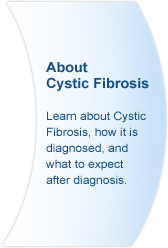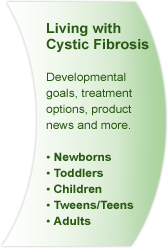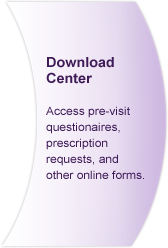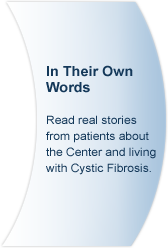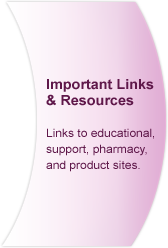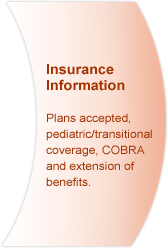|
|||||||||||||||||||
 |
 
Emergency PreparednessWhether it's a temporary power outage that lasts a few hours, or a major storm that will shut down services for days, it is important for people with CF to be prepared. Managing your CF means being sure you have the supplies, medications and access to shelter and services you'll need. Once you're all prepared, you can cuddle under a blanket with a good book and a cup of hot chocolate, and let it snow (or rain). 
Find a Safe Alternative LocationThe first issue to address is where you will go if evacuation becomes necessary. If you have a safe destination outside the storm area where all your needs will be met, your best move might be to go there while it is still safe and practical to travel.If you cannot leave the area, you might be able to find a medical evacuation facility that will offer nursing care, electricity and access to medical supplies. Standard evacuation facilities that are set up for the community may not be able to accommodate your medical needs, but the community might set up a separate shelter for patients with special needs. Reach out as early as possible to find out where the shelter is and to reserve a place. Find out what the accommodations are, and determine whether your needs will be met. For example, some shelters might not have an emergency generator. Others might not accommodate patients taking more than 3L/min of oxygen or patients using nebulizers. When patients have needs that exceed what the shelter can provide, they may need to seek other accommodations, possibly even a hospital room. Medications During a DisasterIf a storm or other calamity is expected, don't take chances with your medications. Fill all your prescriptions if possible and keep a list handy of what you take and when. If you cannot fill all your prescriptions immediately, ask your doctor for backup prescriptions that you can buy at a new pharmacy if necessary. Make sure that you'll be able to fill the prescriptions at your evacuation site. Some states prohibit filling prescriptions from out-of-state doctors.If you have medications that require refrigeration, make sure that your evacuation destination has refrigeration and, if possible, emergency backup power. You can also stock up on ice chests and ice. Oxygen During a DisasterPatients needing supplemental oxygen face specific challenges. You must have oxygen available at all times, so you must be prepared for a lengthy period without access to electricity. For example, an evacuation in anticipation of a storm can create major traffic delays that can leave passengers without access to electricity for many hours.A typical home oxygen supply includes an electrically powered oxygen concentrator for in-home use and portable tanks of air, which don't require electricity, for when patients leave home. Some patients keep a large cylinder of compressed air as a backup in case of a power outage or evacuation. How long the supply in an oxygen tank lasts depends on three factors: the tank's capacity, how full it is, and the flow rate of the oxygen. Oxygen supply companies typically have policies on disaster preparedness. They want to know where the patient will be during a disaster, and they usually suggest that the patient bring an oxygen concentrator if it is practicable to use it at their destination. Companies will typically deliver a three- to-five-day supply of oxygen to the patient's home or evacuation destination. It is essential to contact your oxygen supplier prior to the evacuation to secure an adequate supply and report your destination. If you have concerns about the adequacy of your supply, hospitalization might be necessary. Priority Electricity CustomersUtility companies keep a list of facilities and homes that take priority when power is being restored, such as hospitals or homes with special medical needs. You can apply to have your home included on the list. Your presence on the list does not ensure that power will be restored promptly in the event of an extended outage, so you should ensure adequate supplies and, if needed, provide backup power through a generator. Before a disaster, make sure the generator has plenty of fuel.Water and SanitationPatients with cystic fibrosis can lose excess salt and fluids through sweat and may be susceptible to heat prostration. The typical recommendation for a disaster such as a hurricane is to have on hand a three-day supply consisting of one gallon of water per person per day. There is no specific recommended amount for CF patients, but it might be wise to double the recommended volume on hand.For those who require a nebulizer for inhaled medications, remember that the device must be properly cleaned to avoid contamination. Water can be sterilized through boiling or by adding water purification tablets or unscented household bleach (eight drops per gallon of water) to contaminated water. Disaster Preparedness Education for PatientsPatients (or their caregivers) should create a medical information list that addresses their specific needs. The list should contain all of the patient's medication and therapies, including dosages and a list of any allergies. Also include the names and phone numbers of the physicians who prescribe the medications and home health care clinicians. Also list durable medical equipment and infusion companies that the patient employs and the types of service each provides. The list should record the equipment used, such as supplemental oxygen, oxygen conservers and nebulizers.Creating a PlanYour medical information list is a helpful tool for determining whether to evacuate in an emergency and where to go. You should also involve your insurance company case manager, if you have one. They might be able to arrange hospitalization, if that appears necessary.Maintaining Priorities of CareThe patient's routine will be disrupted, so it might not be possible to duplicate all aspects of care during or after an evacuation, no matter how well you prepare. The patient should understand which elements of their care are vital and which can be compromised, so that sound decisions can be made. An example of the latter is administering inhaled medications (given by a metered dose inhaler) in place of medications ordinarily given by nebulizer. You can also use nonelectric, mechanical devices for assisting in clearing airways and substitute oral antibiotics for inhaled ones.General Disaster Preparedness Checklist
Disaster Checklist for Patients with Cystic Fibrosis
|
||||||||||||||||||
